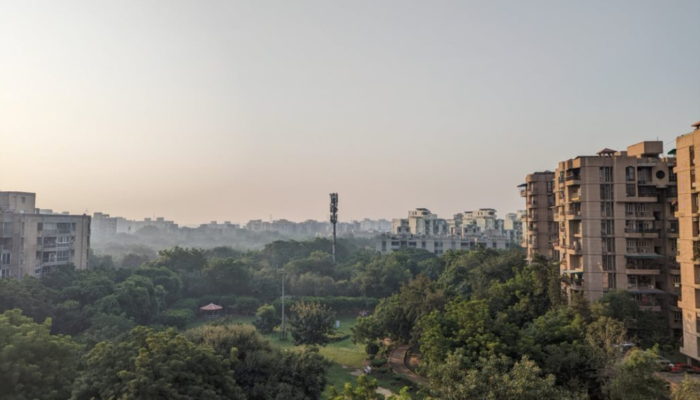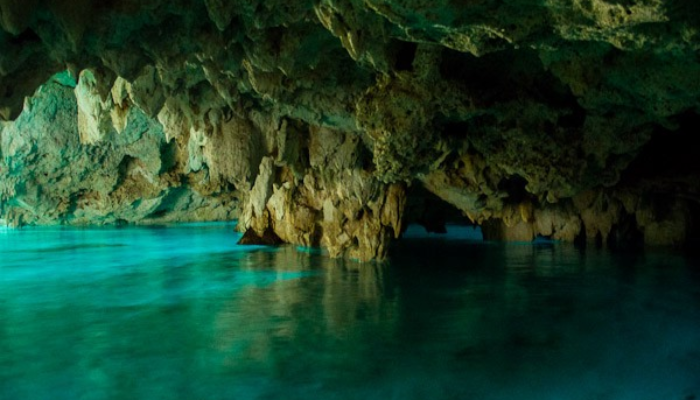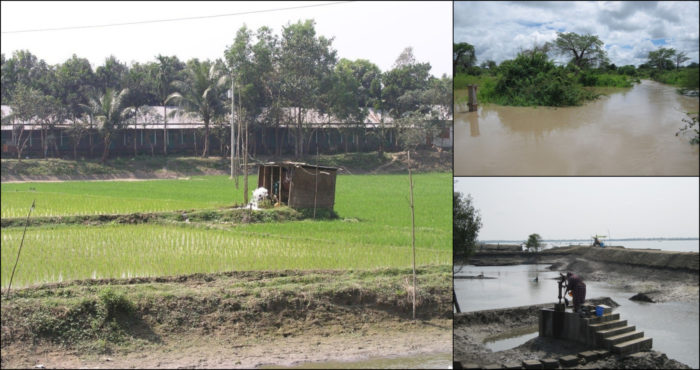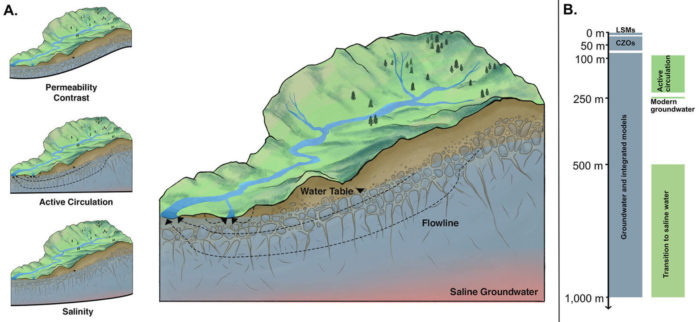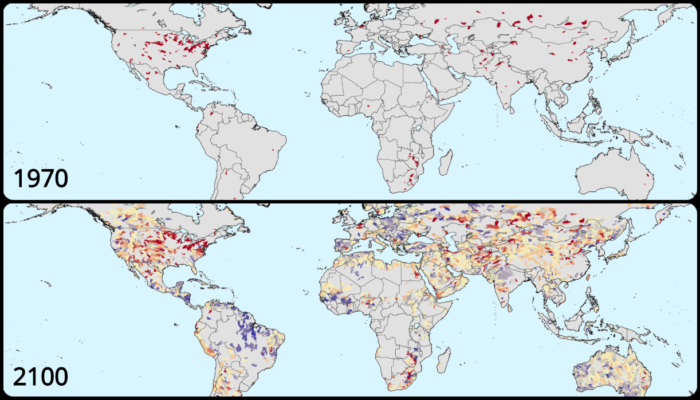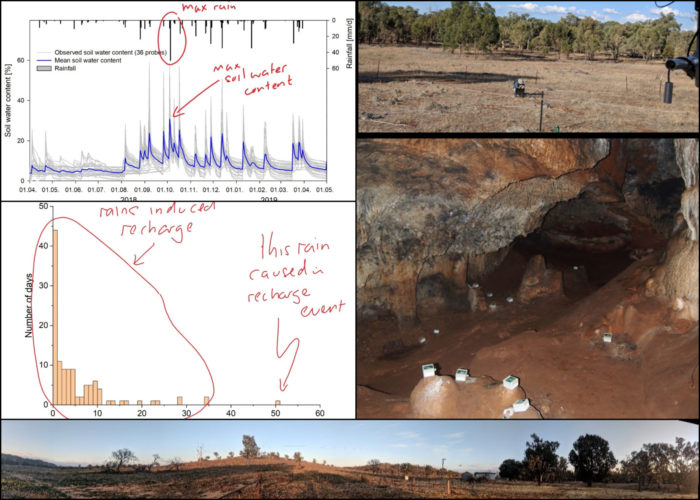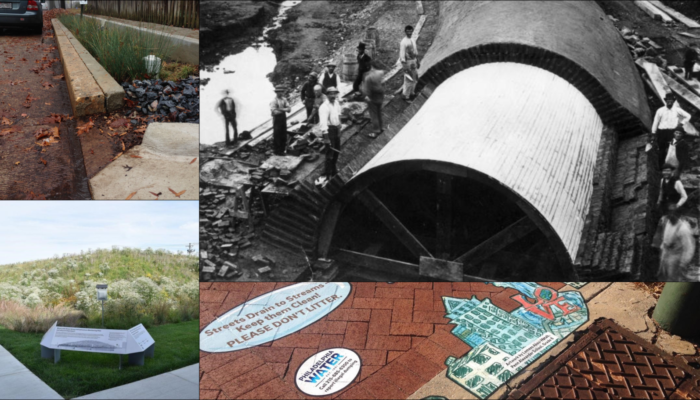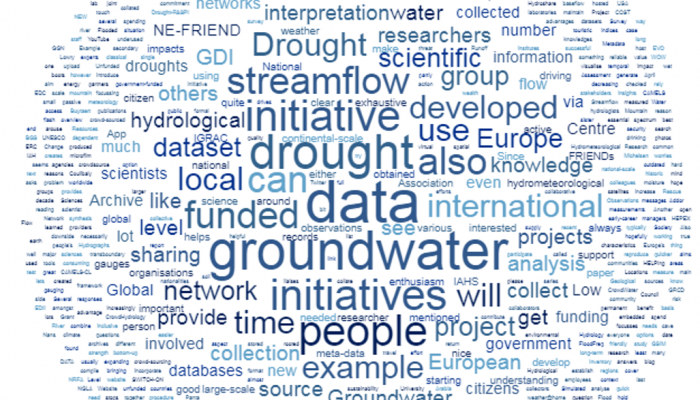by Swamini Khurana Air pollution in India, particularly in north India, is a long-standing problem (1,2) with reportedly 63% of Indians living in areas exceeding the WHO guidelines for PM2.5 levels of 40 µg/m3. This makes India one of the most polluted countries in the world (typically among the worst 5 countries over the past 4-5 years (3)), along with Pakistan and Bangladesh. In fact, this makes ...[Read More]
Groundwater: a sensitive but powerful tool
Guest contribution by Dr. Rosario Sanchez Flores, TAMU Yes, water is a delicate resource. You can barely hold it in your hand, but you can certainly feel it within your fingers; your skin; your nervous system. It has the power to change the energy of our body. It is as natural as magic. We convince ourselves that we control it, but it surprises us every time we think we understood it. It is not a ...[Read More]
Urban Groundwater II: Heading for the coast
by Margaret Shanafield (Flinders University), Ana Manero (Australian National University), Sally Thompson (University of Western Australia), and Greg Claydon Few urban home buyers are picking their dream home based on depth to groundwater. Yet that water level can play an important role in the quality of life in their new home. Typically, it is only after moving in that residents realise problems ...[Read More]
Groundwater and climate change revisited: informing adaptation in a warming world
Recent research has identified the natural resilience of groundwater to climate change and our tendency to deplete this invaluable resource. It’s time we understood, valued, and governed groundwater as the vital adaptation to climate change that it is. roundwater flowing within the geology beneath our feet is the world’s largest liquid store of freshwater. Its volume in most countries in Afr ...[Read More]
Re-thinking watersheds from the bottom up
n a recent commentary published in Water Resources Research, a group of us asked the question: “Where is the bottom of a watershed?” Discussions around the role of deeper groundwater in the hydrologic cycle within this group were triggered by a lecture that Jennifer McIntosh delivered at the University of Saskatchewan’s Global Institute for Water Security in 2018. The discussions around this lectu ...[Read More]
Groundwater pumping poses worldwide threat to riverine ecosystems
Post by Inge de Graaf, Assistant Professor of Hydrological Environmental Systems at the University of Freiburg. With the climate strikes happening all over the world, I sometimes wish I had a crystal ball that would allow me to look into the future. Or even better, a crystal ball that could show me different scenarios of what will happen if we change, or not. Well, I do not have a crystal ball, bu ...[Read More]
Groundwater and a ‘green drought’
Post by Andy Baker, professor in the Connected Waters Initiative Centre at UNSW Sydney, Andreas Hartmann, assistant professor in Hydrological Modeling and Water Resources at the University of Freiburg, and Romane Berthelin, PhD student in Hydrological Modeling and Water Resources at the University of Freiburg. Here in New South Wales (NSW) in southeastern Australia, a long-running drought continue ...[Read More]
Urban water underground: How green infrastructure makes it visible
Post by Theodore Lim, assistant professor of Urban Affairs and Planning at Virginia Tech. He researches the socio-hydrology of green infrastructure planning and implementation. In order for people to care about something, to value it, they have to be able to see it and experience it. This point should not be taken lightly. So much about decision-making and policy-making depends on how much public ...[Read More]
Quest for Sustainability of Heavily Stressed Aquifers at Regional to Global Scales: Upcoming Chapman Conference
Abstracts are due soon (July 10th) for the upcoming Chapman conference on groundwater sustainability on Oct 21-24, 2019 in Valencia, Spain. Hopefully this will be a rare opportunity where many of the leading people on groundwater sustainability will gather with a shared intention to share, discuss and debate scientific advances and encourage a pivot towards groundwater sustainability. A range of p ...[Read More]
Data sharing: an update on new and existing initiatives
Post by Anne Van Loon, Gemma Coxon, and Bentje Brauns. Last year, Anne Van Loon wrote about data sharing initiatives in hydrology (“Data drought or data flood?” 28 May 2018). This post gives an update on existing and new initiatives. CAMELS (Catchment Attributes and MEteorology for Large-sample Studies) The CAMELS datasets are expanding: from the United States and Chile to Great Britain and Austr ...[Read More]

